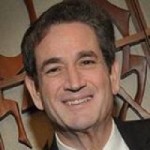By Rabbi Ben Kamin

NEW YORK–The familiar din came through the window of my short-term rental on East 73rd—grinding cement-mixer truck gears, roaring buses, the cacophony of car horns, the piercing BEEP-BEEP-BEEP of some other behemoth vehicle going in reverse. But I’m trying to go forward spiritually, emotionally, and the noise and pavement and general chaos service my soul with a strange, kinetic compatibility. I feel an affinity with the anonymous people rushing by, necks bent down and staring at their cellular screens, plugged into headphones, because—like me—they are all strangers with stories.
My life has taken a significant turn and every one of the venerable bridges that connect this pulsating city with itself is a suspended paradigm and every overheard human voice a clarion to reality. As I note the layers of change here on this urban island, the public bike portals; the anonymous Uber cars contending with the postmodern, hybrid yellow taxi cars; the elegant, defiant replacement “Freedom” skyscraper looming over the Battery, I recall my simpler life here some thirty years ago. And I think about how I’ve come back here, chastened and informed by time and circumstances.
My two daughters were very young and my soul had hardly been calloused by the vicissitudes of age, experience, defeat, and recovery. It was the early 1980s, people still smoked in the bars and the restaurants; the city was not starchy clean; shows like Cats, Evita, Pump Boys and Dinettes, and Miss Saigon were playing on Broadway; Times Square had not become Disney; Ronald Reagan was in the White House; the market was raging with bulls, and nobody was thinking about Islam.
Even Seinfeld hadn’t yet come along yet to help fawn the genuine rebirth of New York which is now in full swing and high spirited, if at the cost of some its grimy character, of roaming its streets in search of a perfect bagel, and a young man taking a young woman into his arms for a deep kiss at 5th and Central Park South without the intimacy being recorded by the omnipresent NYPD surveillance system.
New York is now an astonishingly viable city with clean water, an intricate and pliable transit system, a notably declined crime rate, a vigorous tourism industry and animated convention, theater, library, museum, and media cultures. It has recovered and rebuilt from the unimaginable September 11 attacks with heart and dynamism, lifting the soul of the entire country and rewrting the national view of the city completely.
Brooklyn is so “hipster” that some people are fleeing its gentrified modishness to more affordable spaces within the legendary borough. And there it was, amongst the quiet brownstones of Crown Heights (now light years away from its racial flares of a generation ago), that I found my elder daughter, Sari. We have had much to talk about—life, love, generations, regrets, misunderstandings, personal history. Sari has her own adult burdens—along with many creative achievements, including a burgeoning media career in food studies and a culinary book being circulated to publishers.
In between my other commitments and our own trips to chic restaurants, vodka bars, and an old-fashioned night on Broadway, my daughter listened to me now facing a life alone. She said, with her sad and wise smile, “If I can do it, Dad, so can you.”
New York is a good place to find yourself and realize that every one of us, like the city, can recover.
*
Rabbi Kamin is an author and freelance writer based in Oceanside, California. He may be contacted via ben.kamin@sdjewishworld.com